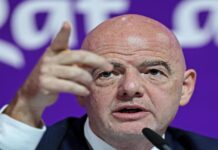David Koch, the controversial multibillionaire who bankrolled a consortium of right-wing think tanks, candidates, and activist groups that reshaped American politics, has died at the age of 79. His brother Charles Koch announced the news on Friday in a statement that did not specify the cause of death but noted that David had been diagnosed with advanced prostate cancer 27 years ago.
The Koch brothers came to prominence by growing their father’s company, now known as Koch Industries, into the U.S.’ second-largest private conglomerate with an estimated annual revenue of $110 billion. Koch Industries specializes in oil but also manufactures a range of consumer and agricultural products. The conglomerate ran afoul of environmental and workplace safety laws throughout the 1990s and early 2000s, paying out millions in regulatory fines. Koch, like his brother, had a net worth of more than $42 billion. According to Forbes, he was the 18th richest person in the world at his death.
In 1980, Koch was the vice presidential candidate for the Libertarian Party with a campaign that won a little more than 1 percent of the vote. But he’s best known for working with his brother to transform the American political ecosystem and promote libertarian policies, many of which directly benefited their company. The brothers spent hundreds of millions of dollars since the 1970s to advance their political interests, coordinating most of the lobbying and activist efforts under the umbrella of their conservative advocacy group Americans for Prosperity. The group reportedly propped up the Tea Party, though Koch denied being affiliated with the movement, and also pushed for tax cuts, weaker environmental protection regulations, canceling public transit projects, and decreasing the prison population. Greenpeace also estimated that the Kochs spent $127 million from 1997 to 2017 to fund 92 organizations that promoted climate denialism and undercut global climate accords.
The brothers also wielded their vast economic resources to boost Republican candidates such as Iowa Sen. Joni Ernst. Though the Kochs declined to contribute any money to Donald Trump in the 2016 presidential election, they reportedly had plans to spend $400 million during the 2018 midterms. The Koch brothers were able to keep much of these political activities in the shadows thanks to the 2010 Supreme Court case Citizens United v. FEC, which considerably loosened campaign finance laws.
Koch left his position as Koch Industries’ executive vice president and ended his involvement in politics in 2018 due to his declining health. Beyond politics, Koch donated millions to museums, medical research, and theater. He is survived by his wife, Julia, and his three children.
Read more in Slate about the Koch brothers.

















